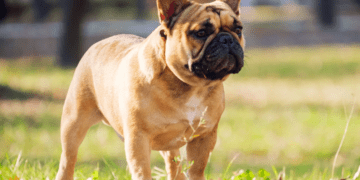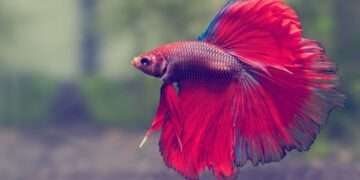Betta fish are notoriously difficult to feed, so it’s important to be able to identify when they’re hungry and get them the food they need as soon as possible. In this blog post, we will discuss what you should look for when you see your betta fish looking caged up and eager to eat. We will also provide tips on how to tell if your betta fish is hungry and how to feed betta food when they need it. If your betta fish doesn’t seem to be eating or isn’t seeming very happy, don’t hesitate to consult a veterinarian.
What do you look for when you see a hungry betta fish?
When you see your betta fish looking hungry, it’s time to provide them with a variety of food options. Make sure to buy a brand of fish food that offers a variety of food items, as your betta will likely become bored of the same foods over time. It’s important to choose high-quality ingredients and avoid any toxins. Finally, be sure to check the reputation of the brand of fish food before making your purchase. Read customer reviews to get an idea of how well the product performs and consider the price when making your decision.
How to tell if your betta fish is hungry?
Betta fish are often considered one of the easiest fish to take care of. However, if your betta fish is not eating or is losing weight, it may be hungry. Hungry betta fish may display a number of signs, including: being inactive, staying close to the bottom of the tank, swimming in circles, gorging on food, and having a swollen abdomen. You can also check the water level to see if it is getting low – betta fish will usually swim up to the top of the water to eat when their tank is low. If your betta fish seems sluggish or unhealthy-looking, take it to a vet for a check-up.
How to feed your betta fish when it is hungry?
Betta fish are attracted to food that is floating in water. When your betta fish is hungry, it will swim towards food and may even jump out of the water to get to it. Make sure to provide your betta fish with fresh food every day – this can be small live or frozen foods such as daphnia, brine shrimp, bloodworms, and insect larvae. Betta fish will also eat flakes, pellets, and vegetables that have been soaked in water. If your betta fish is not eating or appears to be sick, take it to a pet store for examination.
What to do if your betta fish doesn’t eat?
If your betta fish isn’t eating, there are a few things you can do to help him or her eat. First, check the water temperature. A betta fish will eat more if the water is at a comfortable temperature. Second, make sure the water is clean and contains adequate levels of dissolved oxygen. Third, try new foods. Some betta fish like different types of food, so try new foods to see if your betta fish likes them. Fourth, set up a feeding schedule. Feed your betta fish on a regular schedule even if he or she is not eating. Fifth, monitor your betta fish’s behavior. If your betta fish doesn’t eat, monitor his or her behavior for any changes such as sluggishness, poor swimming, or increased aggression.
Conclusion
Betta fish are omnivorous and will eat a variety of food, including plant matter, live insects, and small fish. The best food to feed your betta fish depends on its dietary needs and preferences. Once you know what type of food your betta fish likes, it is important to provide it on a regular basis. A good rule of thumb is to feed your betta fish once a day, but this frequency can be adjusted based on your pet’s age, health, and activity level. It is important to note that feeding your betta fish food may cause minor side effects such as increased water consumption and appetite changes.
















